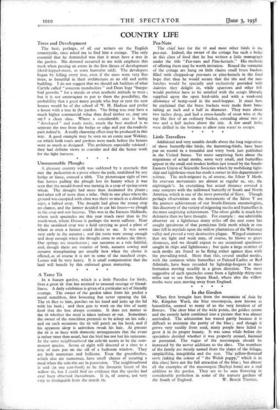* * * * Unseasonable Ploughs
A pleasant country walk was saddened by a spectacle that met the rOede_strian at a point where the path, undefined by any hedge or fence, crossed a tilth. The picturesque sight of two fine horses pulling the plough lost its beainy when it was seen that the mould-board was turning in a crop of spring-sown wheat- The drought had more than decimated the plants ; had taken toll of more than a tithe. Only in one place where the ground was canopied with elms was there so much as a dimidiata seges, a halved crop. The drought had given the young crop no chance, and the farmer decided to cut his losses—to plough in the crop and sow lucerne. This was in the Eastern Midlands, where such spectacles are this year much rarer than in the south-west, where Dorset is perhaps the worst sufferer. Near by the sacrificed crop was a field. carrying as good a plant of wheat as even a farmer could desire to see. It was sown very early in the autumn ; and the roots were strong enough and deep enough when the drought came to endure the thirst. Our springs are treacherous ; our autumns as a rule faithful, and, though there are votaries of both, autumn sowing and autumn transplanting are usually best when the choice is offered, as of course it is not in some of the standard crops. Losses will be very heavy. It is small compensation that the land will benefit by this enfbrced green manuring.


















































 Previous page
Previous page